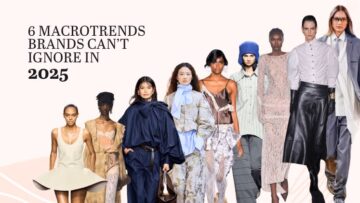H&M, Bestseller and few other buyers were recently in the news for positive reasons that they are not cancelling orders and are making full payments. But Indian apparel exporters, working with these particular brands, are of the views that these are imposing certain conditions on them that are not possible to fulfil. If these claims are true, then it is quite evident that these brands are only trying to save their skin by staying away from negative publicity.
Much like Indian apparel exporters, international organisations too share similar opinions. Clean Cloth Campaign (CCC), which is continuously raising voice against brands that have cancelled orders, said “Jack & Jones (Bestseller) asks its factories for discounts on already placed orders. How will the workers eat?”
“Brands like H&M, Bestseller, etc. have been reaping huge profits from sales generated on Indian grounds over the past few years. Contrary to the statements before various media platforms, H&M is clearly discussing with their suppliers that orders delayed due to COVID-19 lockdown will be cancelled without liability, as they will be missing the selling period,” shared one of the top export houses of Delhi-NCR that is working with H&M, on the request of anonymity. This export house claims that around Rs. 30 crore has got stuck because of lack of support from the two major brands.
Another exporter underlined similar details about another prominent brand, “Danish retailer Bestseller is negotiating discounts with the suppliers on already shipped and future orders, which are scheduled for shipment for the next 2 months. Apart from the discount, many orders have been cancelled without any liability, leaving suppliers in a mess.”
Exporters also shared that these brands are asking for such delivery dates, which are not possible at all to match even by air shipment. Air shipment was never a viable option for exporters, and in the current critical condition, it is even more challenging.
While both H&M and Bestseller have reiterated that they are supporting their vendors, Apparel Resources approached them in this regard.
“To help suppliers in this difficult situation and minimise the negative impacts of lockdowns, we have taken the decision not to use our contractual right to immediately cancel delayed orders, but instead, allow an extra month delay, or if the products are not seasonal, even more time. If as a last resort, the supplier cannot deliver our orders, we will have an open dialogue with each affected supplier to see if we can come up with a solution, which could be, for example, to place additional orders that can be delivered at a later stage,” H&M said and further added that it is in close dialogue with several partners and industry stakeholders to see how it can and should support in this difficult situation with the aim of finding a joint industry solution.
H&M has also joined a global call-to-action to support garment workers and suppliers during the COVID-19 pandemic. “We will work together with the ILO, IOE (International Organization of Employers), ITUC (International Trade Union Confederation), IndustriALL Global Union and other brands to tackle the immediate effects of COVID-19 and continue work towards a resilient garment industry for long-term.”
The retailer also added that it wants to help suppliers and garment workers, and ensure the future viability of the industry once the crisis has passed. “We will, therefore, stand by our commitments and agreements by taking delivery of and pay for already produced goods as well as goods in production if delivered within a reasonable timeframe. This is in accordance with contracts as well as our responsible purchasing practices,” it said.
On the other hand, Bestseller replied that it is committed to accept all orders from Spring/Summer that have been produced or are in the process of being produced. “We have not cancelled orders unless it has been in agreement with the given supplier. We are reconfirming and still placing orders for Autumn, though a reduction in some volumes is sought to prevent over-production. There is a projected sales drop, and to our best ability, we have to forecast the demand in the market and to what level it will recover,” it said in an email to Apparel Resources.
It further added, “Any changes in terms and volumes have been agreed upon with all our suppliers through these individual negotiations, and all due invoices to suppliers have been paid to enable suppliers to cover their expenses.”
Sourcing from 750 independent suppliers (around 1,400 factories) in Europe, Asia and Africa, H&M is associated with more than 200 manufacturers, including most of the giants. Both the brands do have retail operations in India also.
Irrespective of the claims both from the suppliers and the brands, supporting each other is the need of the hour, and whoever is not supporting its partner, will have to face more challenges in future.







